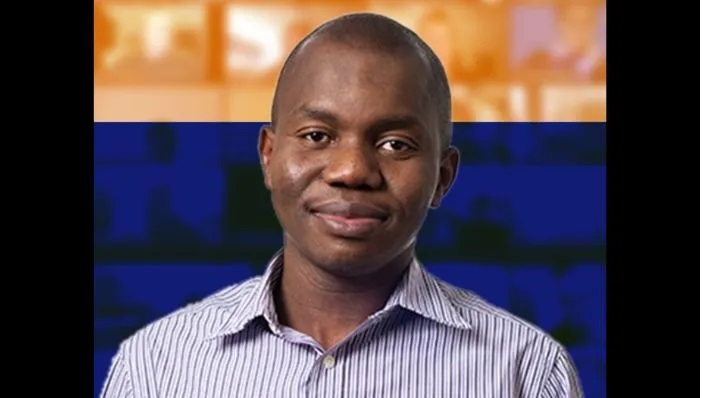As the ripple effects of Nigeria’s fintech and startup crisis deepen following the shutdown of several high-profile ventures like Lidya, Professor Ndubuisi Ekekwe, founder of Tekedia Capital, has urged struggling founders to resist the urge to close operations and instead consider mergers and strategic alliances.
In a strongly worded post shared on LinkedIn on Friday, October 24, 2025, the Harvard Business Review contributor said the ongoing wave of shutdowns reflects a dangerous mismatch between local revenues and foreign-denominated costs.
“Young companies are scaling revenue in naira but running out of oxygen in dollars,” Ekekwe wrote. “When the runway shortens, many founders conclude that the next logical thing is to power down. Lidya joined today… Yet, I have a message: Do not shut down. Rather, consider merging.”
Merger and Alliance: A Call for Strategic Collaboration
For Ekekwe, the current turbulence in Nigeria’s startup scene is not a death sentence but a wake-up call for collaboration. He emphasized that mergers and alliances can help startups pool resources, strengthen technological capacity, and build resilience against external economic shocks.
“Through mergers, startups acquire scale: shared technologies, expanded customer bases, harmonized teams, and optimized cost structures,” he explained. “Together, they can build resilience, innovate better, and sustain growth.”
His message underscores a growing consensus that startups in emerging markets must adopt collective survival strategies rather than pursue isolated competition.
In a response to Ekekwe’s post, data analyst Akeem Mustapha called the proposal “deeply thoughtful,” adding that “consolidation can turn fragmentation into strength, shared infrastructure, complementary capabilities, and reduced cost pressures could redefine survival as sustainability.”
Consolidate Rather Than Collapse
Ekekwe’s remarks come amid a mounting list of African startups facing closure, many of which raised millions in venture capital but later folded under operational and foreign exchange constraints.
The recent devaluation of the naira and persistent dollar shortages have sharply increased costs for tech firms that rely on cloud services, international partnerships, and imported technology, even as their revenues remain trapped in a weakening local currency.
Instead of giving up, Ekekwe urges founders to “pause, re-examine, and reframe” their approach to adversity.
“Mergers are not failures. They are repositionings,” he said, urging founders to see beyond ego and titles. “Someone may need to surrender the CEO badge for CTO, CPO, COO, etc. Greatness is not in titles but in outcomes.”
The call reflects a broader sentiment that collaboration, not competition, will define the next phase of Africa’s startup evolution.
Tekedia Capital’s Offer
Highlighting his firm’s ongoing engagement with struggling ventures, Ekekwe revealed that Tekedia Capital has developed a merger-support framework already helping some startups reimagine their operational models.
“Before you sign that final memo, Tekedia Capital would like to speak with you,” he wrote. “We understand the peculiar gestation cycle in Nigeria where patience is not just a virtue but a requirement for survival.”
The investment firm, which has backed several African startups, emphasizes the long-term opportunities embedded in Nigeria’s informal and formal markets, sectors that remain largely untapped but rich in potential.
Ekekwe’s optimism contrasts with the doom surrounding recent shutdowns, asserting that “Nigeria will rise again… the ecosystems will blossom again.”
Why This Matters to Startups’ Survival in Africa’s Emerging Markets
Nigeria’s startup ecosystem, once celebrated as one of Africa’s most vibrant, has entered a period of recalibration. In 2023 alone, African startups raised over $2.3 billion, but a growing number of firms have since faced liquidity crises, funding slowdowns, and governance failures.
Ekekwe’s intervention reframes this moment as a strategic inflection point, arguing that founders must rethink growth from “velocity to viability.”
According to Mustapha, the post-float economic landscape has forced a new realism into the entrepreneurial culture.
“While currency volatility and capital flight have tested the ecosystem’s resilience, the call for strategic mergers is both pragmatic and visionary,” he observed. “True innovation is not only about creating new ventures but also about reimagining existing ones for endurance.”
The message resonates across Africa’s tech hubs, where sustainability increasingly depends on strategic cooperation, cost discipline, and local value creation rather than heavy reliance on foreign capital.
For many analysts, mergers could become a lifeline for startups battling rising inflation, dwindling investor confidence, and complex regulatory environments.
About Professor Ndubuisi Ekekwe
Professor Ndubuisi Ekekwe is one of Africa’s most respected technologists and innovation strategists. A TED Fellow, IBM Global Entrepreneur, and World Economic Forum Young Global Leader, he earned his PhD in Engineering from Johns Hopkins University, USA, and holds four master’s degrees.
He invented and patented a robotic system acquired by the U.S. Government and co-designed the accelerometer used in the iPhone while working at Analog Devices Corp.
As founder of Tekedia Capital and chairman of Fasmicro Group, Intel Corp’s certified partner in Africa, Ekekwe has mentored dozens of startups across the continent.
Recognized by The Guardian among “60 Nigerians Making Nigerian Lives Matter”, he continues to shape discourse on innovation and entrepreneurship through his frequent essays in the Harvard Business Review.
______________________
Bookmark Techparley.com for the most insightful technology news from the African continent.
Follow us on X/Twitter @Techparleynews, on Facebook at Techparley Africa, on LinkedIn at Techparley Africa, or on Instagram at Techparleynews






